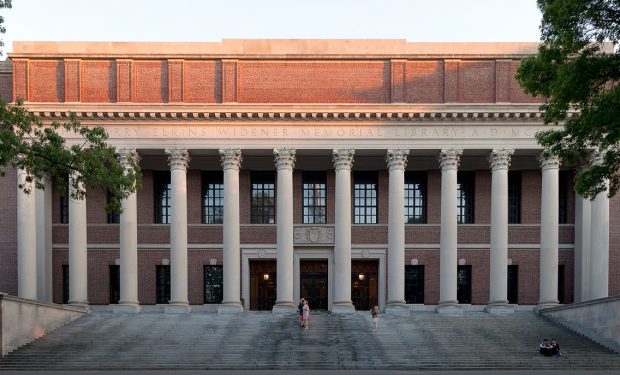The complaint that appeared to finally doom embattled former Harvard President Claudine Gay dropped on Monday — and by Tuesday morning Gay had resigned. The 30-page complaint — alleging 12 new ‘research misconduct’ instances — aims not merely at Gay, however, but at Harvard as an institution. It is designed to exact concessions beyond Gay’s departure.
The new complaint follows a previous “formal complaint” published by the conservative news outlet the Washington Free Beacon. The Free Beacon‘s editor Eliana Johnson, wrote on X that Harvard officials and board members failed to answer her staff’s questions, asserting that the university had grown accustomed to operating without “scrutiny.”
Harvard officials never once responded to inquiries from the @FreeBeacon. Neither did members of the Harvard Corporation – https://t.co/mumy0BAIpC
— Eliana Johnson (@elianayjohnson) January 2, 2024
Going beyond Gay, the new complaint insisted that “an investigation should be opened to determine whether any Harvard personnel subject to the policy on research misconduct failed to report ‘observed, suspected, or apparent research misconduct’ by Claudine Gay.”
Detailing a timeline of (so far unproven) plagiarism accusations made against Gay, and what it characterizes as Harvard’s premature and reactionary response to them — and notably coming after Gay suffered a bruising public relations debacle for her refusal to adequately condemn antisemitism during recent congressional testimony — the complaint alleges a total of 50 instances of plagiarism in Gay’s scholarship.
Raising questions about possible conflicts of interests inherent in the procedures guiding Harvard’s examinaton of the earlier accusations about Gay’s scholarship, the complaint asserts that tenure considerations and more influenced the “failures to do proper due diligence” by those at Harvard with “unresolved personal, professional, or financial conflicts of interest.”
Citing Michael Goodwin writing for the New York Post, the complaint claims that “despite the scandalous plagiarism findings, the same people who picked her continue to protect her — and themselves. Because they did such a shoddy job of vetting her, the board members are refusing to honestly evaluate her history and performance because it would make them look bad for hiring her in the first place.”
Referencing an internal Harvard investigation into the earlier accusations against Gay that took just five weeks (November 2 to December 9) and resulted in Gay’s maintaining the University’s support, the complaint asserts:
“So we now know for certain that the board’s investigation was a sham. Gay and Harvard, who conveniently omitted to mention any of this in their timeline of events to the Chronicle of Higher Education, had already made up their minds before launching their investigation. That’s why they let their lawyer tell the Post that the allegations were ‘demonstrably false’ days before an investigation even began. The investigation was just for show.”
It’s notable that what looks like plagiarism outside of academia isn’t always considered so inside academia. One of the scholars Gay’s material resembles closely, Political Science Professor David Canon, told the Free Beacon: “I am not at all concerned about the passages. This isn’t even close to an example of academic plagiarism.”
In mid-December, when the allegations were first made public by conservative activist Christopher Rufo and journalist and American Conservative contributor Chris Brunet, Gay wrote: “I stand by the integrity of my scholarship. Throughout my career, I have worked to ensure my scholarship adheres to the highest academic standards.”
